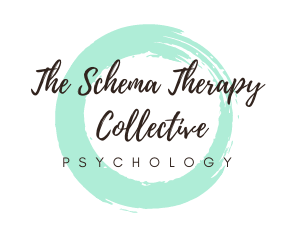If you struggle with social connection due to a disconnection or an inability to express your true feelings or thoughts, including pleasant emotions, you may have the emotional constriction schema.
You may:
Have a sense of pride in being stoic or call yourself a “rational person”
Strongly believe that “Showing emotions means I am weak/vulnerable”, “I am strong because I’m not swayed by my emotions”, “It is foolish to be emotional”
Have difficulty expressing any kind of emotion due to underlying concerns about shame and embarrassment.
Have difficulty expressing your genuine thoughts, feelings and needs
Receive feedback that people find you personality-less or hard to read because you don’t express emotion or have a flat facial expression or tone
Fear letting people see what they really think and feel feels with you dread. embarrassment and shame
Have difficulty being intimate including sexual intimacy
Not engage in anything fun or playful
You may have a diagnosis of alexithymia, anhedonia, dysthymia, perfectionism, schizotypal or avoidant personality disorders, Autism.
Yalcin et al (2022) described the emotional inhibition schema as “The excessive inhibition or disconnection of spontaneous emotion, action, or expression, due to an underlying shame/embarrassment. It involves inhibition of both negative impulses (e.g., anger, aggression, sadness) and positive impulses (e.g., joy, affection, sexual excitement, play), difficulty expressing vulnerability or communicating freely about one’s thoughts, feelings, and needs, or excessive emphasis on rationality over emotions. There may be a sense of pride in being “a rational person”, or the moral/ethical value in one’s stoicism. “
This schema can be very painful because it deprives you of a genuine connection with other humans. This schema tends to make you blank to others and difficult to read. This makes other people feel uncomfortable around you and they may avoid social interactions with you. This feedback loop can then result in you feeling unlikeable, which is not true, but a nasty side effect of the emotional constriction schema. It can also result in life feeling very dull and boring.
How this schema forms
People with this schema tend to develop this due to being raised in environments (including social and cultural) that:
- Did not value spontaneity and instead preferred rigid rules, duty, rationality, ethics, or keeping up appearances
- Were not safe to express valid emotions due to ridicule, shaming, judgement and/or abuse.
- There was no space for them to express their feelings due to enmeshed relationships with caregivers.
- Expression of emotions were viewed as a sign of weakness
How to heal this schema:
People with this schema need support and encouragement to experience emotions in the safe environment of therapy and then in the outside world. The genuine therapy relationship can help the client redefine emotions as normal and necessary for human connection, instead of shameful and embarrassing. Skill building around social relationships can also help. This can happen through activities that encourage spontaneity and play and therapeutic exercises like imagery rescripting that give people the opportunity to have their emotional needs met and develop healthier and more adaptive ways to experience themselves and their emotions. A scaffolded set of experiments outside of the session with the goal of being more expressive is also helpful as therapy progresses.
Yalcin, O., Marais, I., Lee, C., & Correia, H. (2022). Revisions to the Young Schema Questionnaire using Rasch analysis: the YSQ-R. Australian Psychologist, 57(1), 1-13.https://doi.org/10.1080/00050067.2021.1979885 Page 1 of 2
and interview with Dr Ozgur Yalcin for Schema Therapy Made Simple (2023).


